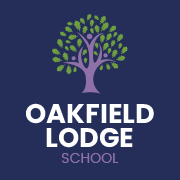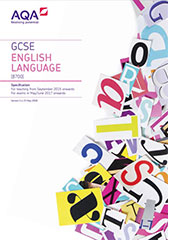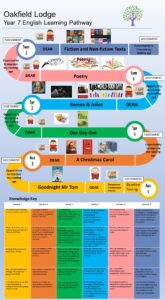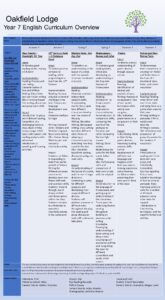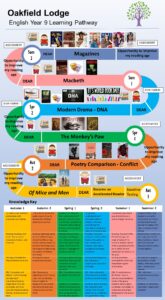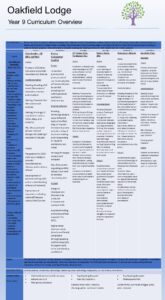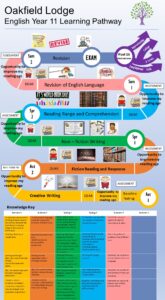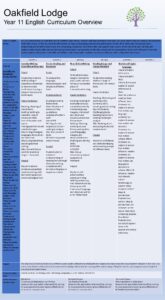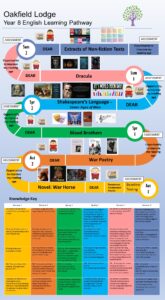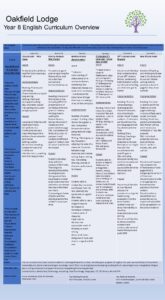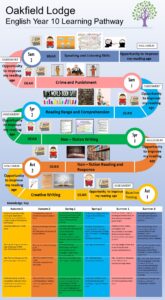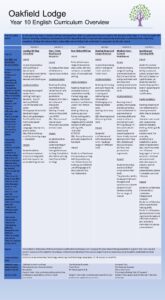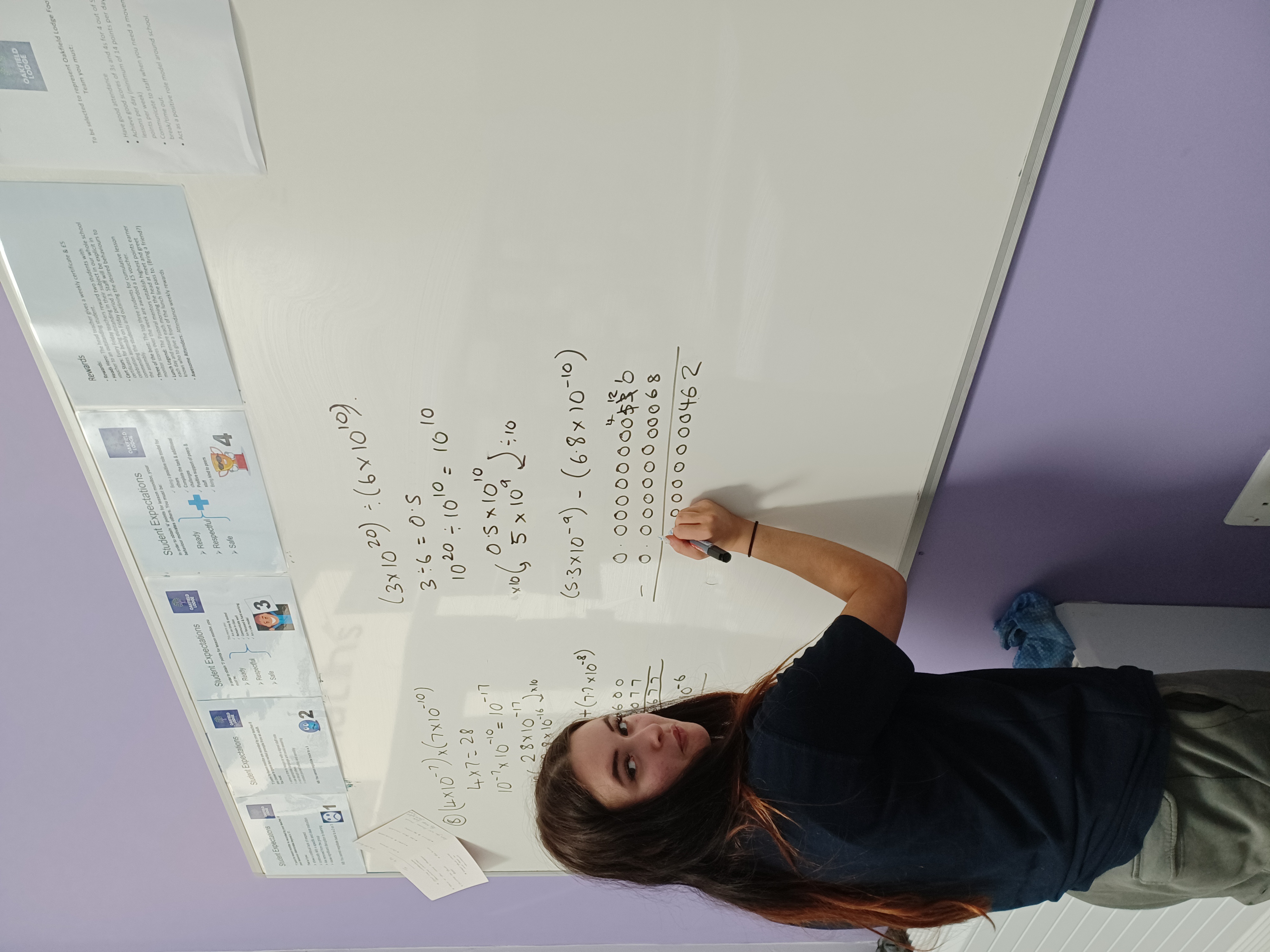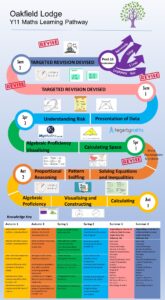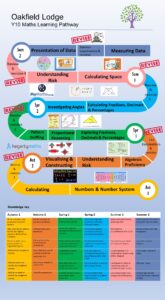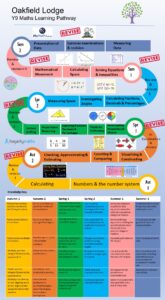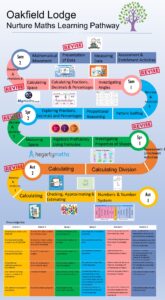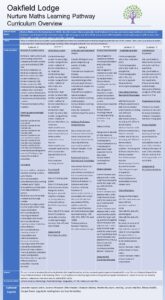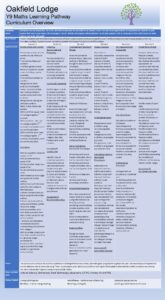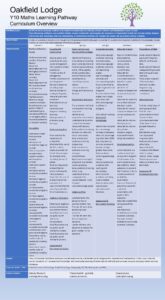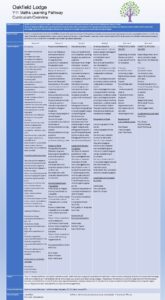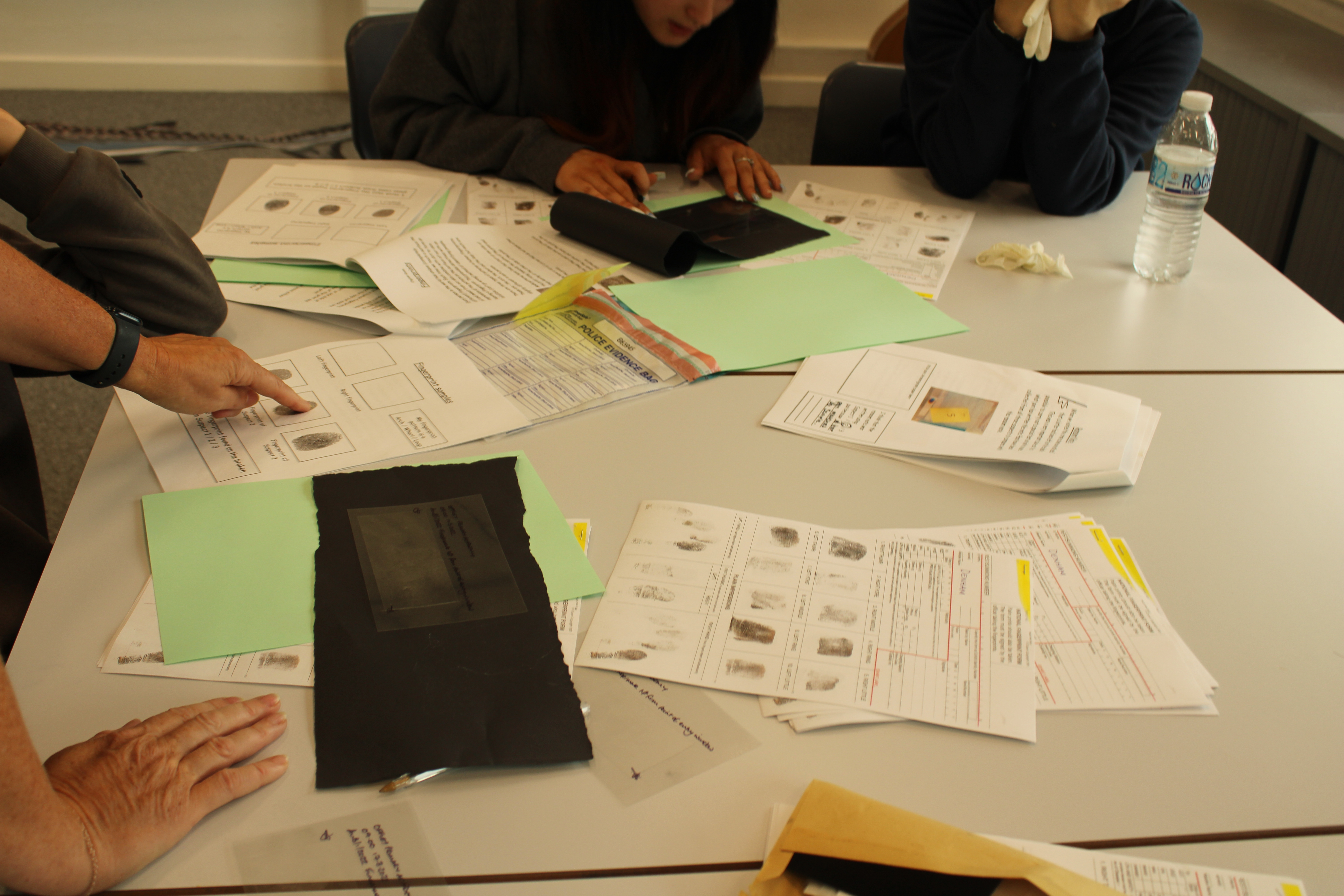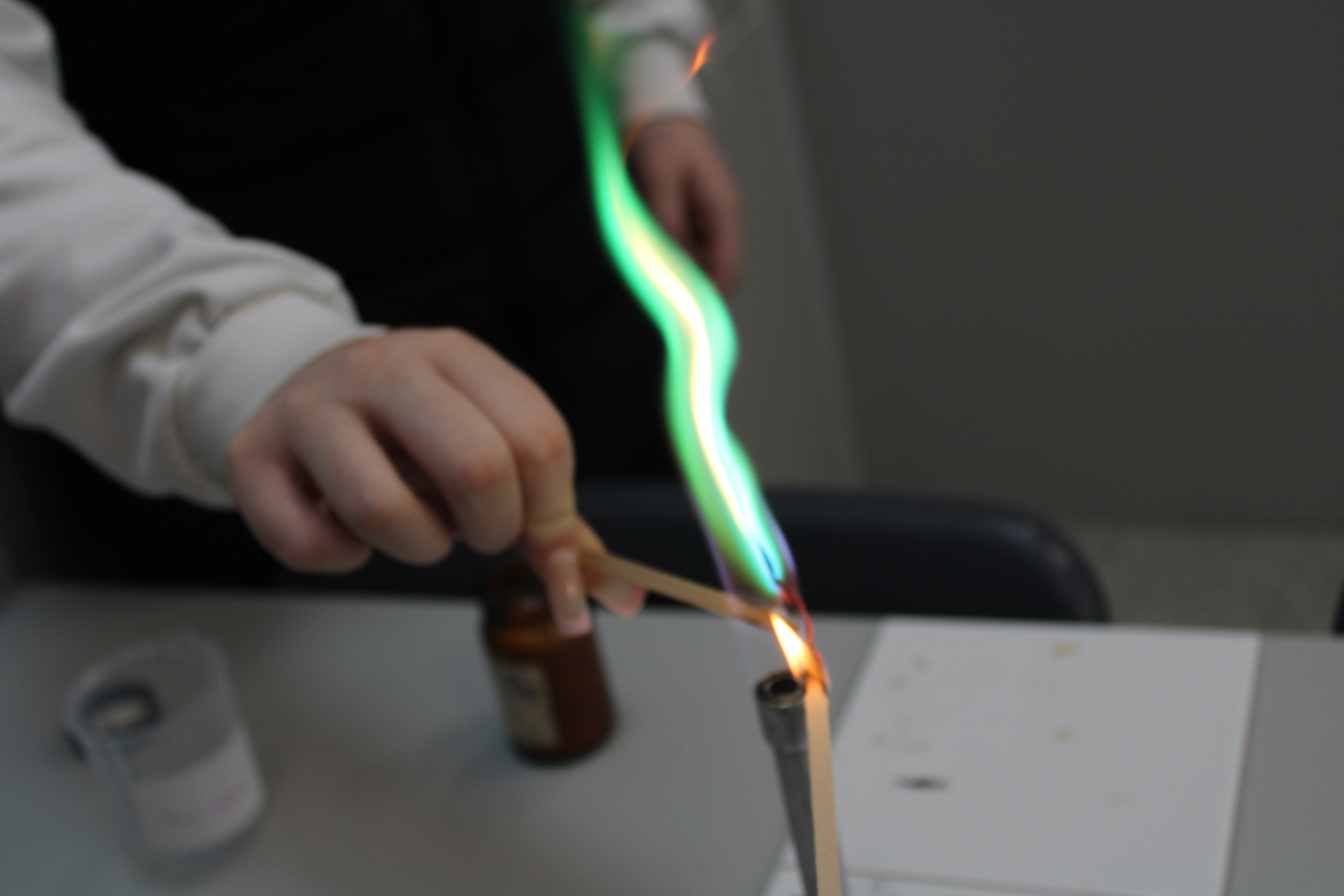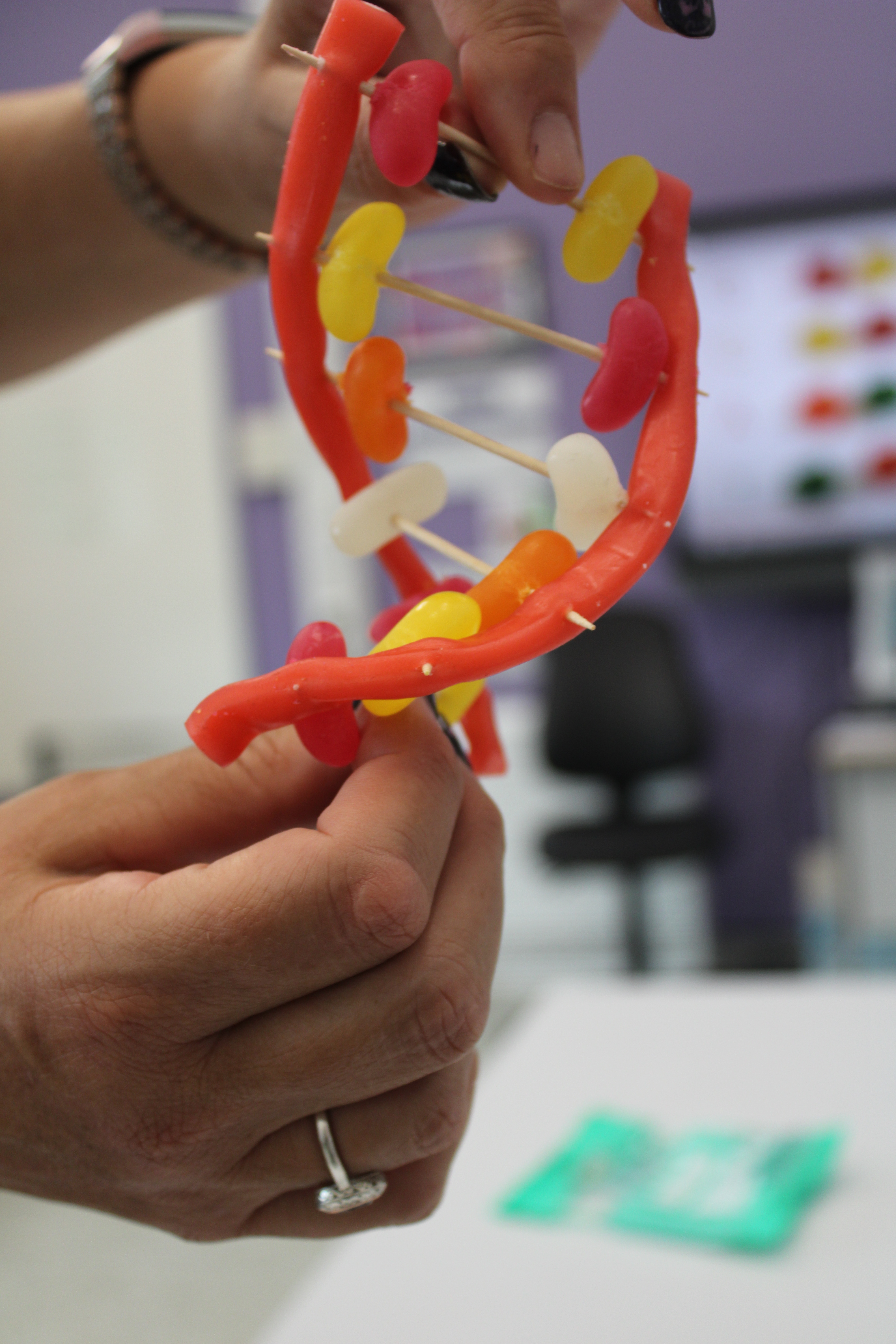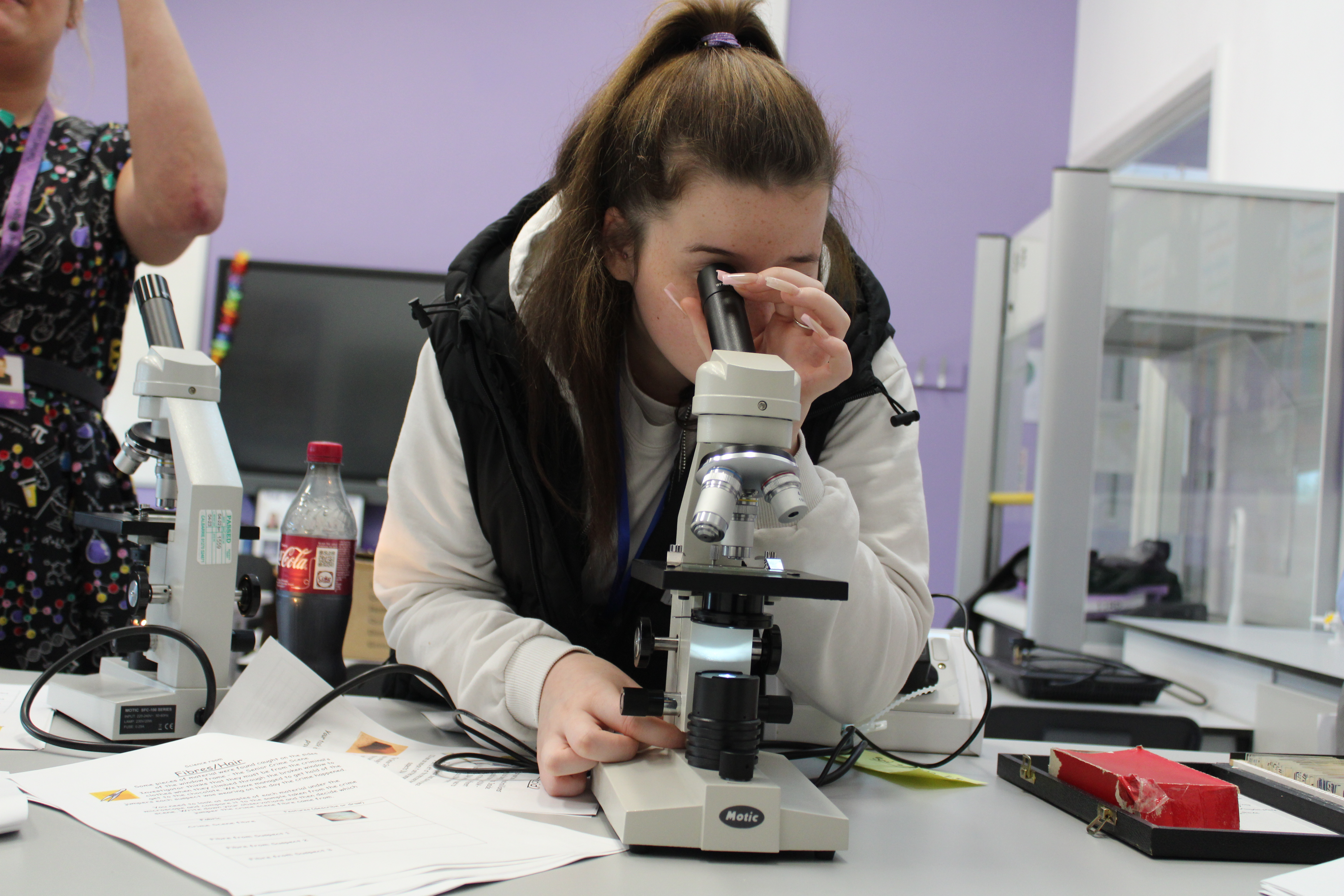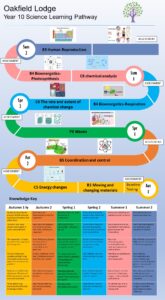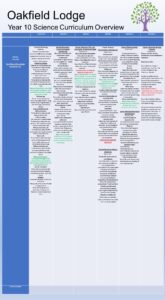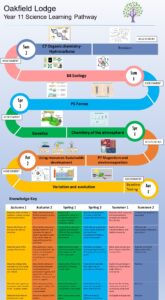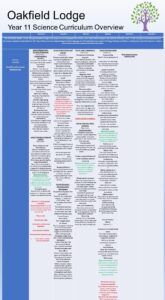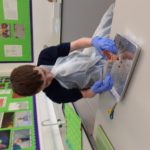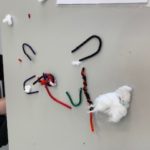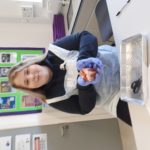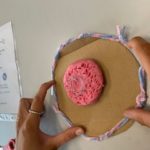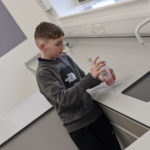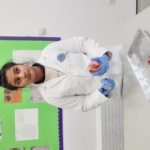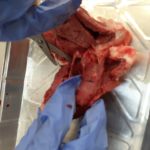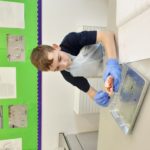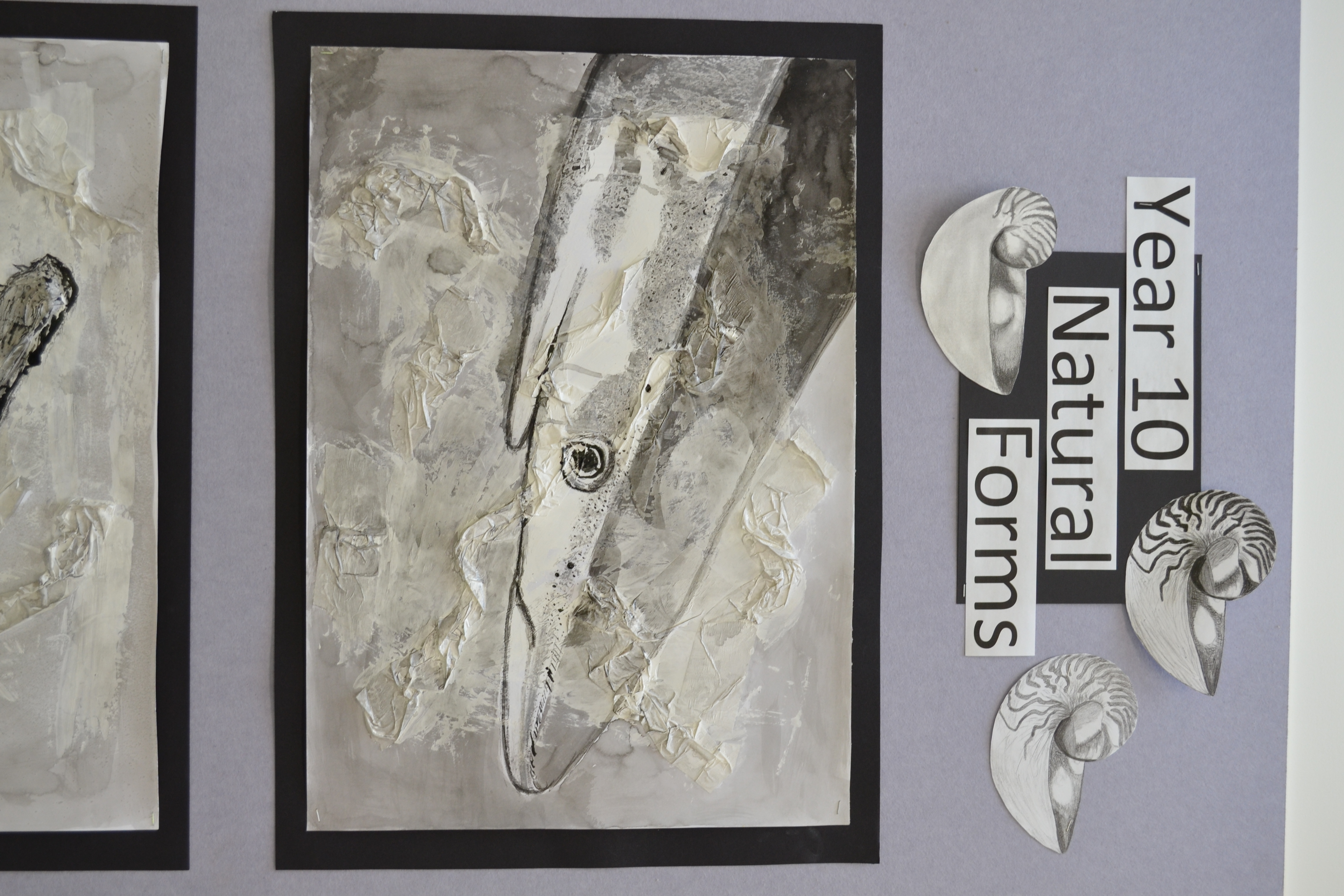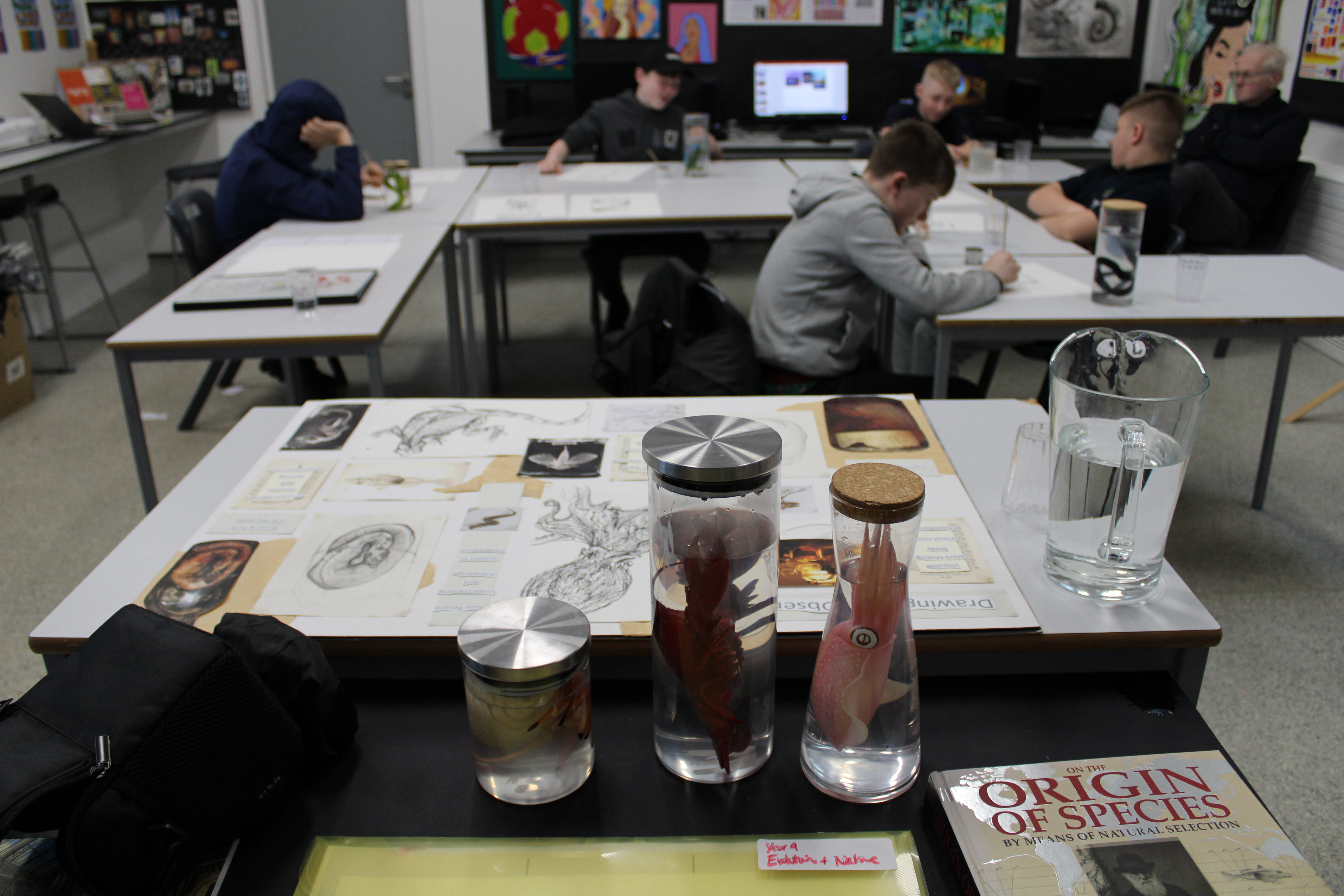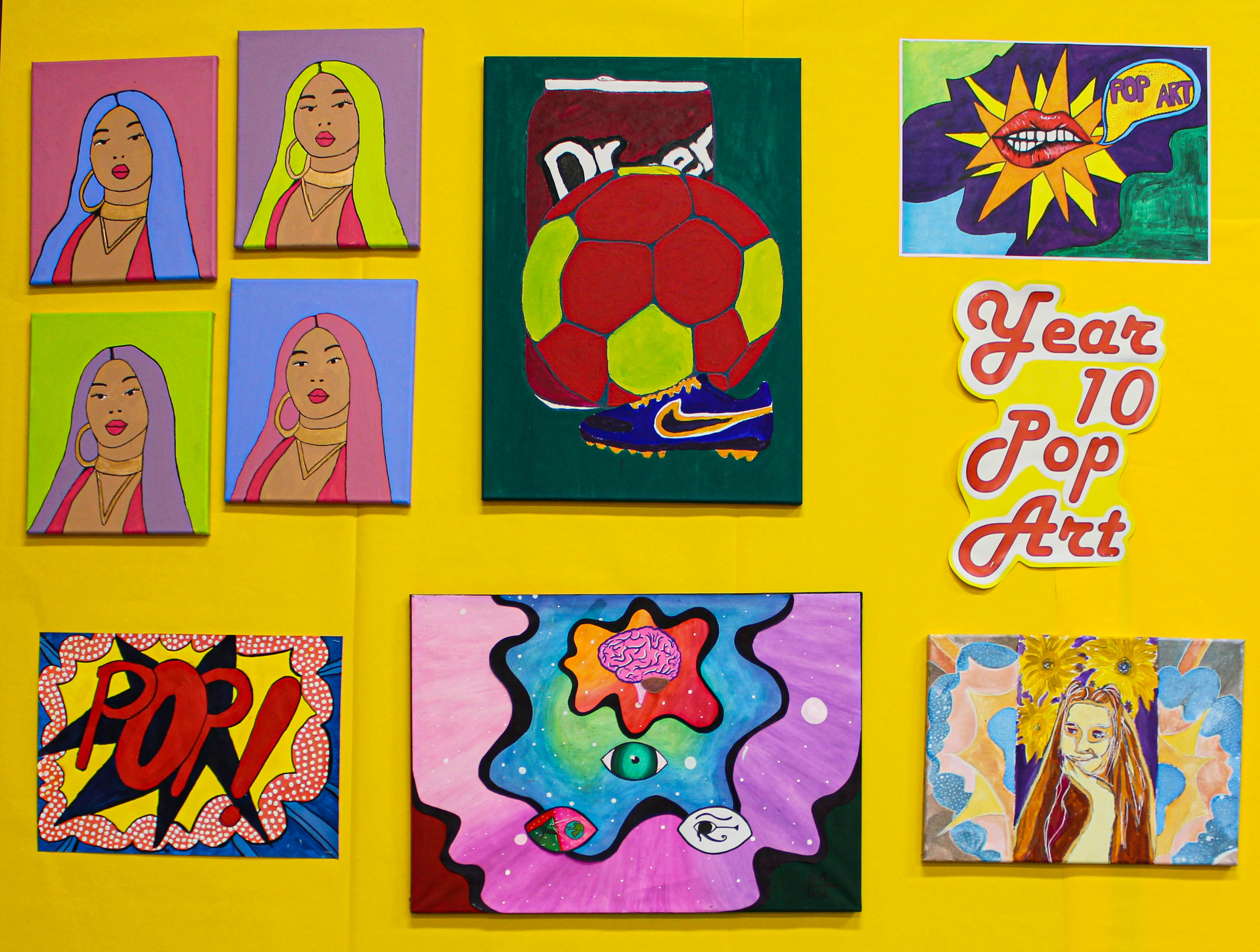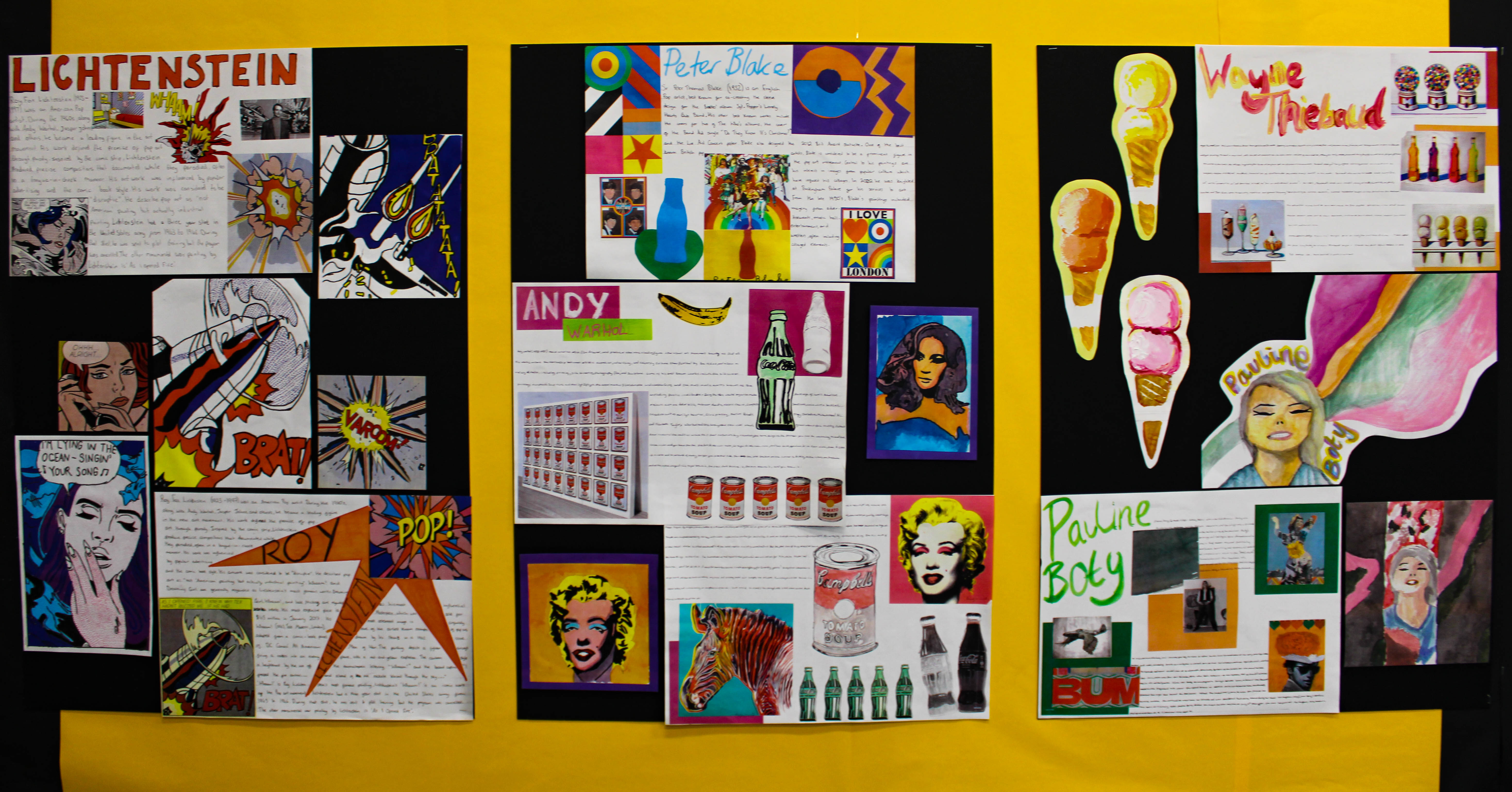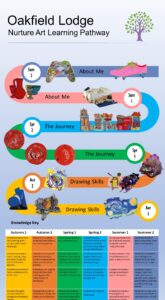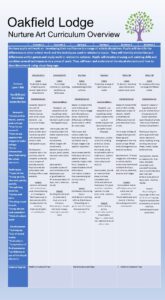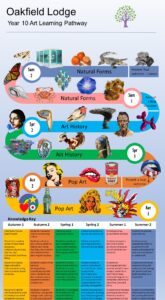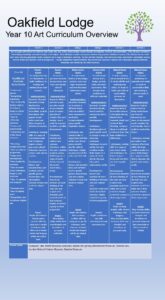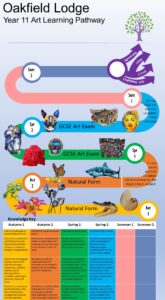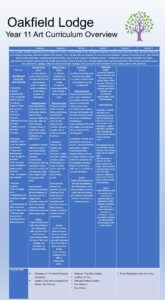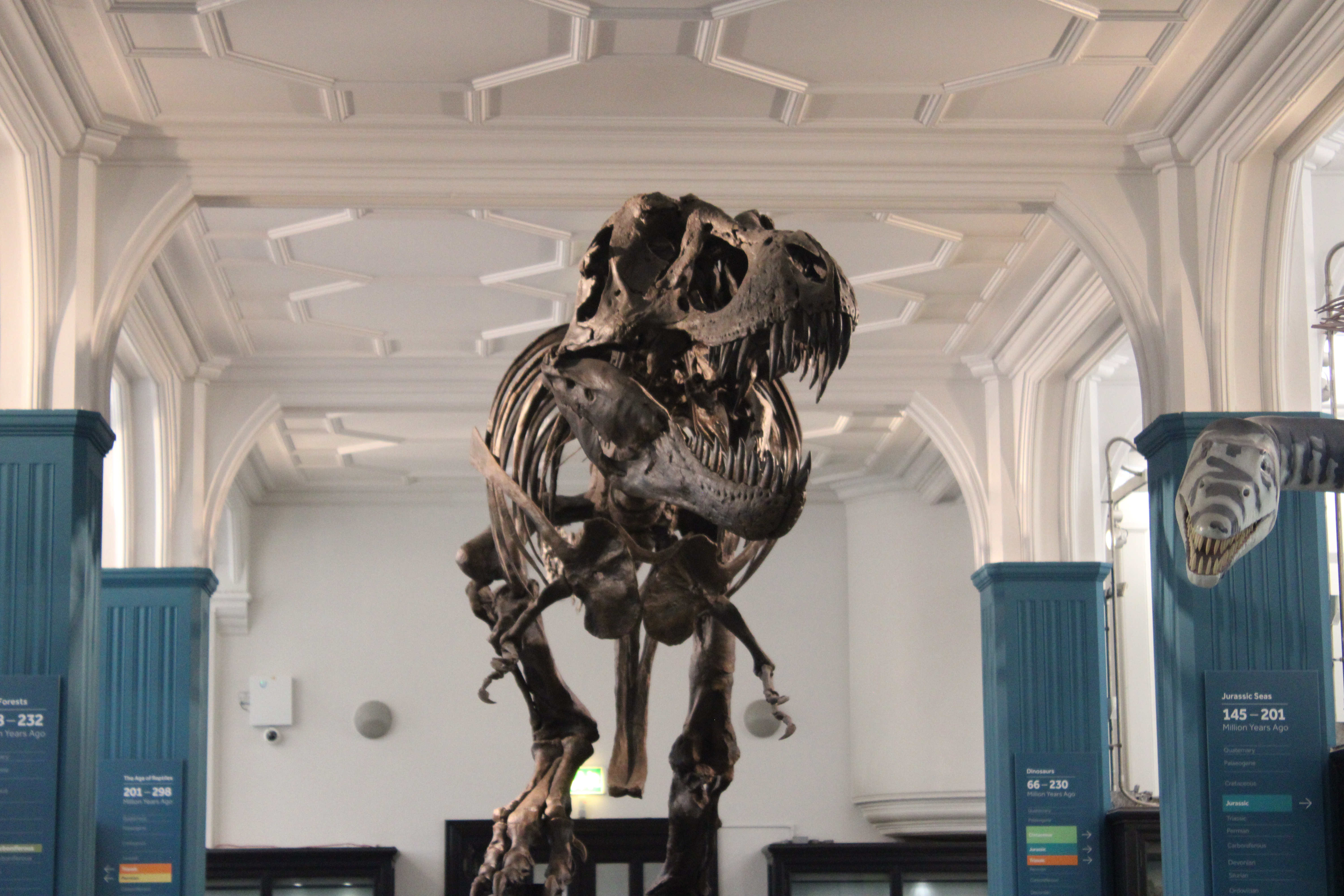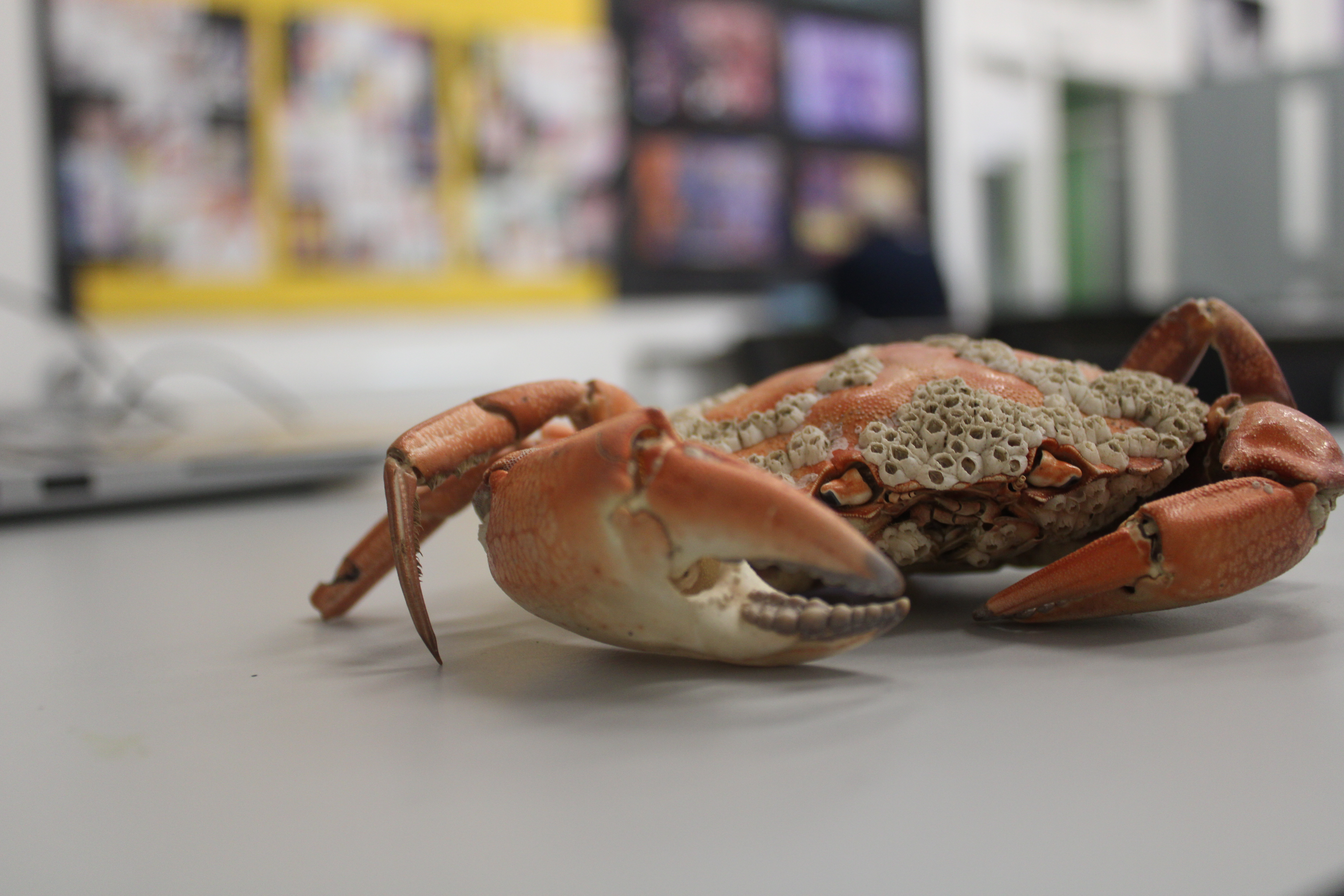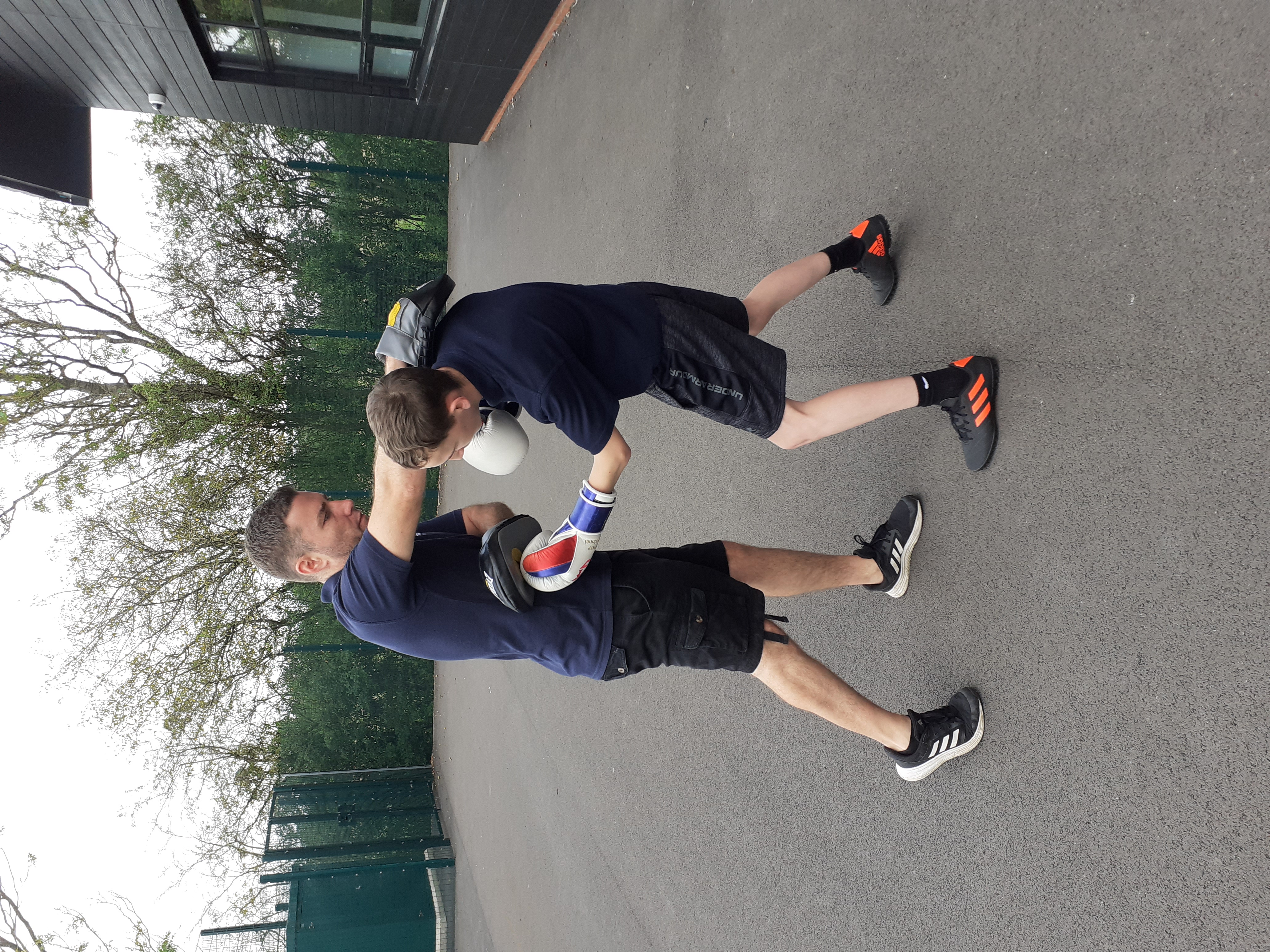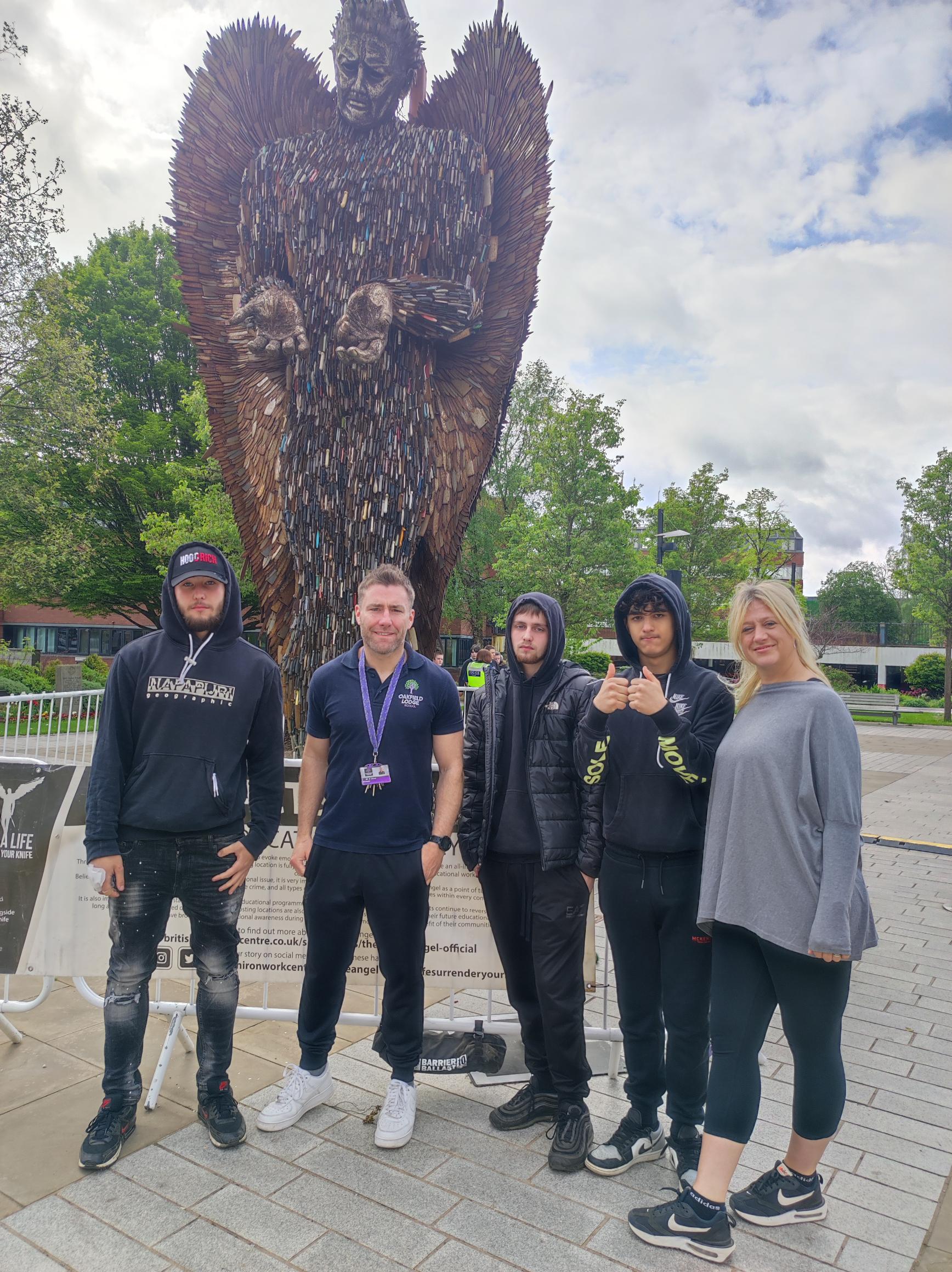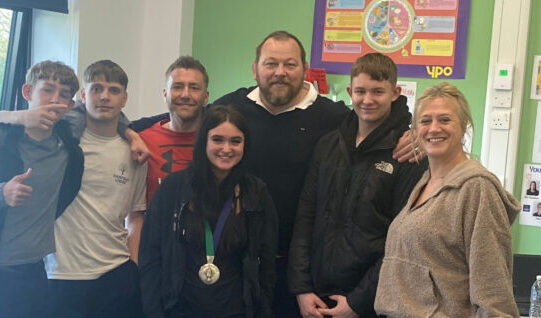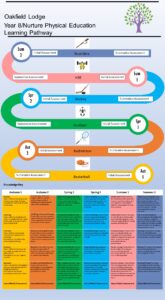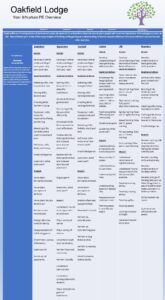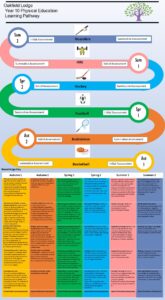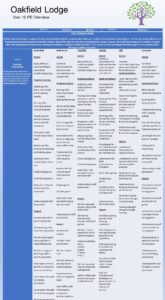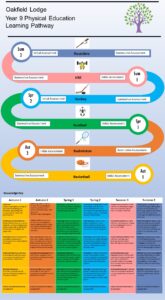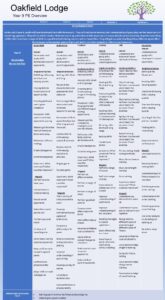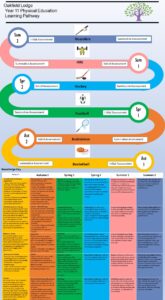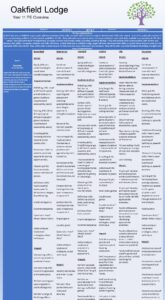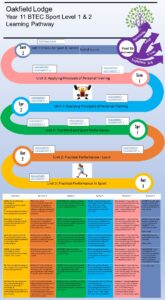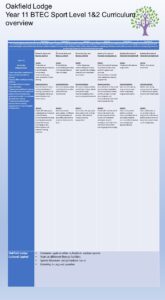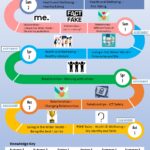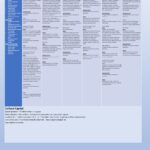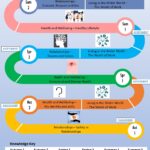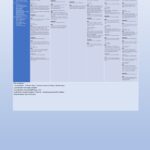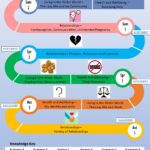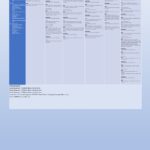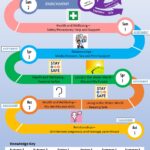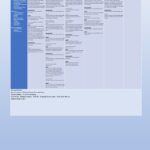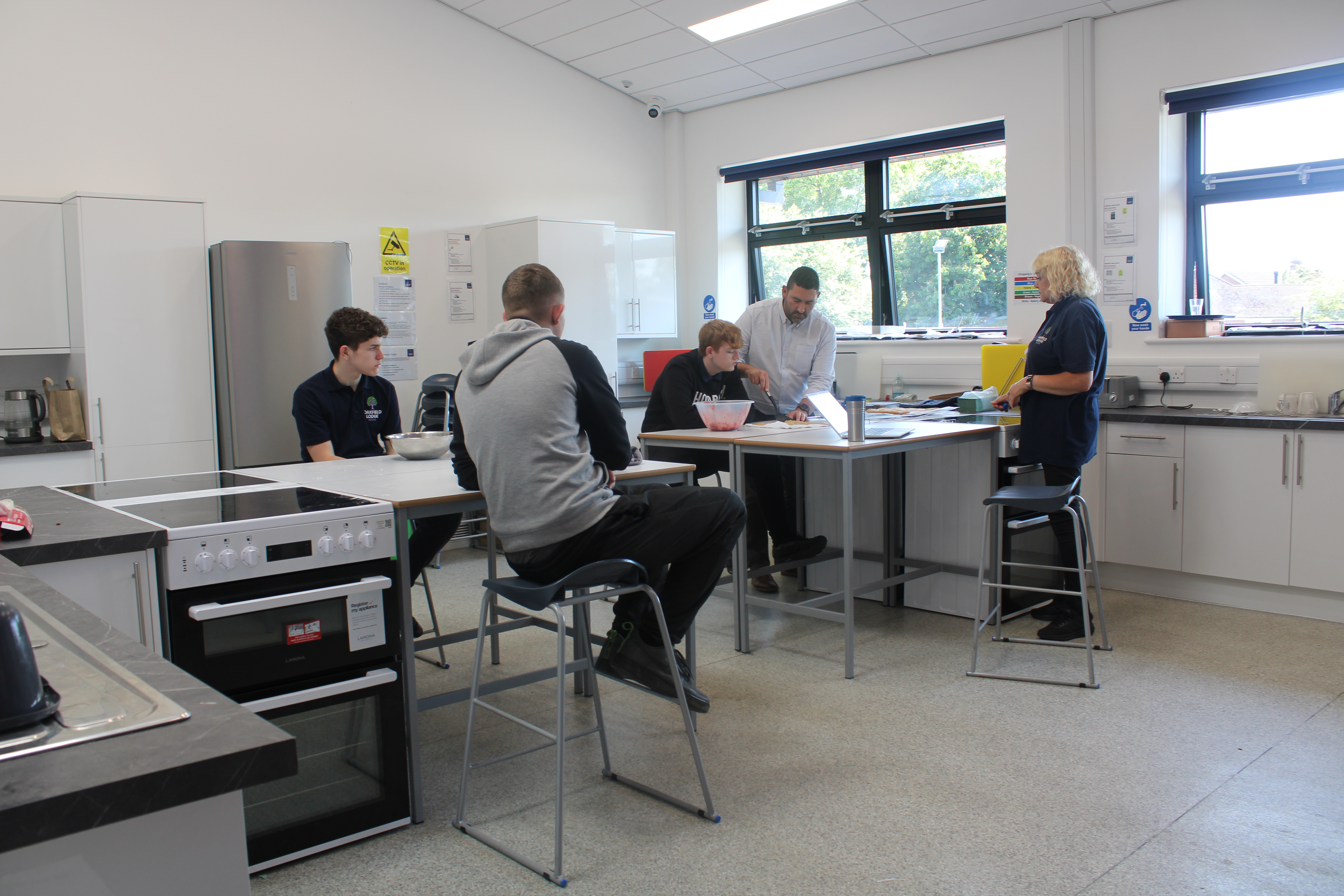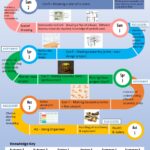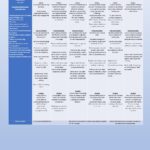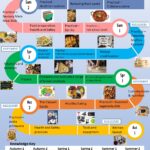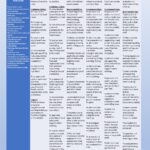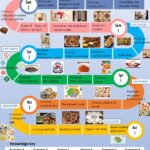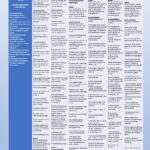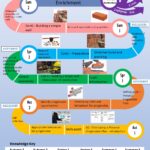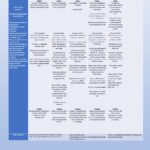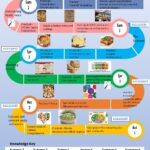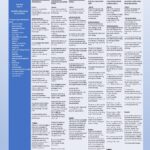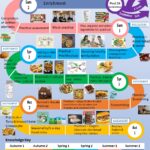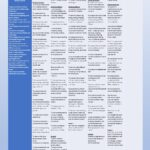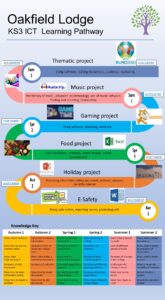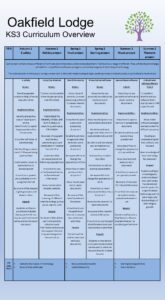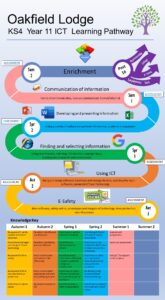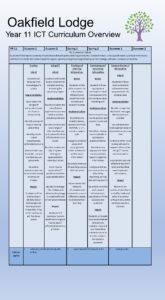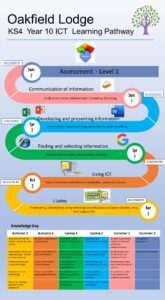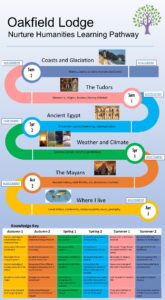Mr Neil Cochrane, English Lead
n.cochrane@oakfieldlodge.cheshire.sch.uk
Oakfield Lodge School promotes an environment in which students develop a comprehensive and enduring understanding of the English Language & Literature through access to the highest quality English teaching and learning. The main aim for English is to develop the whole child. We want students to learn about themselves, their relationships and to have an awareness of their place in a multi-cultural society, as well as prepare them for the resilience needed to meet the demands of the 21st Century.
The English Department’s vision is to create a stimulating climate for learning, to support everyone in our school community as they strive for excellence and to work in partnership with others to remove barriers to learning. We strive to empower all students by fostering a love of reading, fostering a diverse and equitable environment and enthusiasm for English that will promote their lifelong learning as confident, flexible, and resourceful thinkers in anticipation of a global future.
Intent
The intent of our English curriculum is to design a subject that is accessible to all, maximizing the development of every child’s ability and achievement.
Offer a variety of approaches to teaching and learning to engage and motivate students, encouraging their active participation in lessons.
Through English Language, we seek to provide students with the language capacity to navigate and succeed in courses of their own choosing, as well as inspiring students to become ambitious and pursue more language-based careers, such as writing, journalism, speech therapy or education. Through English Literature, we seek to develop students ‘ability to think deeply about humanity, and to discover the riches of their Literary Heritage, whilst developing the critical faculties to evaluate the ideas and the craft in these texts. We challenge students to think, act and speak like those working in the field would: to read like writers, to write like readers, to speak like orators.
Develop English knowledge including reading, writing and speaking & listening that encourages confidence and enjoyment.
Utilise students’ interests and popular current events in the world to stimulate learning.
Set realistic yet challenging targets, with high expectations for all students.
To ensure all students leave Oakfield Lodge with a English qualification which reflects the best of their ability.
In English, we enhance our students’ cultural capital by visits to theatres (local & national), visiting authors/poets, museums & historical sites, media/journalist environments and Library visits.
Implementation
Students have full access to the English National Curriculum that is differentiated to meet students’ learning needs and styles.
The English curriculum is designed to be challenging, appropriate to each student’s stage of development. Our curriculum covers the different areas of reading and writing fiction and non-fiction, and study of literary texts each year with the sophistication of the skills gradually increasing, and regular spiraling back to ensure key content is secure. Discussion and debate are a regular feature of lessons, as is extended reading and writing. We engage with real life contexts where possible to enable students to connect their learning with the world beyond.
The English Curriculum offers opportunities for cross-curricular learning, to ensure students make significant personal development.
We offer a GCSE in English Language, along with Functional Skills at Entry Level, Level 1 and 2 in English.
Useful Links to English websites.
Mr Paul Ibbotson, Maths Lead
pibbotson@oakfieldlodge.cheshire.sch.uk
Intent
Oakfield Lodge School promotes an environment in which students develop a comprehensive and enduring understanding of the concepts of mathematics through access to the highest quality mathematics teaching and learning.
The Mathematics Department’s vision is to create a stimulating and ambitious climate for learning, to support everyone in our school community as they strive for excellence and to work in partnership with others to remove barriers to learning. We strive to empower all students through rich mathematical exploration, fostering a diverse and equitable environment and enthusiasm for mathematics that will promote their lifelong learning as confident, flexible, and resourceful thinkers in anticipation of a global future.
In Mathematics we aim to support the development of literacy by providing opportunities for students to communicate their mathematical reasoning.
Implementation
Maths is a hierarchical subject therefore the curriculum is designed to deliver a coherent journey with a succinct delivery to ensure time is maximised to develop understanding through practice.
At KS3 all students work through the curriculum at the same pace, with higher attaining students extended through depth rather than an acceleration of content.
At KS4 all students continue their studies on an appropriate GCSE pathway determined by their prior attainment and knowledge gains of previous study.
Students who lack the pre requisite skills and understanding are supported to overcome barriers and succeed with content through appropriate in class intervention and wider programmes of support.
In Mathematics we enhance the cultural capital of our students by providing opportunities to experience the application of mathematics in the real world.
Impact
At each stage of learning students should be able to demonstrate a conceptual understanding of the topic which will be further built upon over time. Students’ ability to apply knowledge in multiple contexts and solve problems will be evident. Retrieval and retention of knowledge is promoted through the interleaving of content. Formative assessment and feedback used regularly to support planning to move learning forward.
We offer a GCSE in Maths. Along with Functional skills at Entry level and Level 1 and 2 in Maths.
Miss Emma Thompson, Deputy Headteacher & Science Lead
e.thompson@oakfieldlodge.cheshire.sch.uk
Rationale
The provision of a broad and balanced Science curriculum at Oakfield Lodge school involves more than coverage of the National Curriculum outcomes relating to the areas of Biology , Chemistry and Physics it also encompasses experiences of cultural capital, social, moral, spiritual and cultural experiences.
In Science we also understand that having a wide vocabulary and good reading skills are crucial for our students to able to access all of all the curriculum and also wider skills and experiences such as extracurricular activities, trips and exploring future career paths, these form part of the Science curriculum within school.
Oakfield Lodge School Science curriculum is linked to our vision and values and reflects the community we serve – We believe that every individual is valued and is given the greatest possible opportunity to achieve their best in a school where pupil needs are met, enabling social and academic achievement with the highest possible outcomes.
Intent
Science at Oakfield Lodge school is planned to develop and encourage a can do mindset in learners and staff by ensuring that the curriculum is relevant and accessible to all whilst providing appropriate stretch and challenge at every stage. Students will leave Oakfield Lodge with an appropriate range of qualification in Science that allow them to make positive choices in preparation for adulthood.
It is the intention that the Science department will seek to allow the Science curriculum to evolve in order to include the following aims:
- To ensure and promote the provision of stretch and challenge to all students at Oakfield Lodge
- Provide learning opportunities that are relevant interesting and support the preparing for adulthood curriculum whilst inspiring creativity and original thinking
- Build skills of independence and resilience in a safe and nurturing environment where pupils feel comfortable to challenge or question their own learning as well as the teachings of others
- To develop and embed schemes of learning that embrace fundamental British values, healthy living, careers guidance and the promotion of citizenship.
- Promote the preparation of our students for the next stage of their education and adulthood by ensuring that the teaching of science provides opportunities for pupils to consider how their own learning in science contributes to the decision making processes relating to future employment, independence, community, inclusion and their own health and wellbeing.
Implementation
Implementation is how the curriculum is delivered it is the journey of learning from Year 7 through Year 11 . In Science we seek to develop a broad, rich and rigorous curriculum that stretches and challenges all our students.
The Science department consists of a Lead for Science and a HLTA.
Students are generally taught in pastoral groups and the teacher are expected to differentiate to ensure there is stretch and challenge for all abilities in every class. The Science department has planned out topics in detail, which include where applicable reference to the requirements of the National Curriculum. Year 9 to 11 pupils are studying AQA Trilogy Combined GCSE Science, which will equate to 2 GCSE’s . This modified national curriculum is planned to meet the needs of each students as an individual learner.
Impact
Teachers have high expectation of all students , whether in terms of upholding the core values of the school or in respect to their own progress and responsibilities within science lessons. Expectations of behavior and learning are visible to students in their books. All students reflect on their own progress with termly targets at the front of every book.
The teacher monitors student progress throughout the year to ensure that the needs of all the students are being met. This is done by utilizing assessment data in a meaningful way. For example, to address misconceptions in learning and to target intervention to improve individual outcome and monitor progress. In terms of planning for learning, data is used to ensure that LTP and MTP provide appropriate stretch and challenge to those who are most able and provides appropriate learning experiences to those that struggle to access particular aspects of the curriculum. Scrutiny of individual student’s data ensures that students are placed on appropriate pathways to learning at all key stages.
As a department and a school we seek to unsure that when our learners leave Oakfield Lodge School they are well rounded young people with an excellent set of examination results and planned path forward in preparation for adulthood.
We offer a GCSE in Science AQA Trilogy along side AQA unit awards
The visual arts are significant in all areas of our lives. Artists, crafts people and designers shape our existence to a huge extent by traditional means and with new technologies; from the homes we live in and the clothes we wear, to the range of visual information we process.
Through a broad and flexible learning journey within the visual arts at Oakfield, we aim to nurture an understanding and enjoyment of art and actively encourage a whole hearted engagement from our students, without an over concentration on outcomes but with an equal emphasis on experimentation, processes and the acquisition of skills. We want to instil in our students a confidence in their own creative ability and empower within them with a critical awareness of their own work, we encourage a mind-set for all students which will contribute to individuals making accelerated progress.
We aim to balance the rigour of work and experimentation with the spiritual satisfaction of making new and unique artefacts and with engaging in individual and shared communication within the studio and betond. We promote passion, purpose and pleasure that combine to create the magic, which is Art.
INTENT
Oakfield Lodge visual arts department aims to provide a rich and diverse range of practical activities and skills based learning, which encourages students to follow their creative talents and give depth and breadth to personal knowledge and understanding. Students have the opportunity to participate in engaging lessons, where learning experiences accelerate, challenge and infiltrate thinking and visual outcomes. We use the work of artists, both past and present, as a constant inspiration for all work.
At Oakfield, we see creativity as a combination of intellectual, emotional, aesthetic and spiritual values, informed by a continuum of learning experiences. Understanding ones’ individual creativity is at the core of progression in any field of human endeavour and our aim is to support all students in developing this essential life skill.
IMPLEMENTATION
At KS3 all students work through the curriculum at the similar pace, with higher attaining students experiencing extended studies through depth rather than an acceleration of content. We aim to allow students to master the skills required to identify and solve problems in visual and tactile form and research, select, make and evaluate in a continuum.
Furthermore, we seek to foster students’ abilities to form, compose and communicate, in two and three dimensions in a systematic and disciplined way in a variety of media. To also develop the ability to perceive, understand and express concepts and feelings in visual and tactile form by establishing the understanding needed to organise and relate abstract notions to practical outcomes.
Art & Design at KS4 is GCSE and an exciting course which builds on experiences from KS3, dealing with issues in much greater depth. Across the two-year course we focus on traditional Art and Design skills via the AQA examination board and offer the all-round Art and Design course and also Photography.
Activities tend to flow, one into another, so a drawing could develop into a piece of sculpture or a painting etc. To help this process along, we continue to look at the way artists’ work, whilst scrutinising the practice of successful practitioners. The coursework students produce is classed as their portfolio and there are no restrictions on what can be included with the GCSE syllabus. All students will need two full units of work completed across the duration of the GCSE. However, students are able to include smaller sets of work, which encourages experimentation and greater risk taking.
The GCSE course consists of:
- A portfolio of work (worth 60% of the total marks).
- An externally set project with no time restrictions in terms of preparation time. This culminates in a ten hour examination session (worth 40% of the marks). This full project allows students to design and create a piece of art work in the media they choose which best suits their skills and your ways of working.
- For elements of the course students must have portfolio evidence of sequential development, in the form of sketchbooks or mood boards. These should contain preparatory ideas, developed in the form of drawings, sketches, notes, collected photographs and images etc. as well as an awareness of the work of professional artists, designers and craftsmen, past and present.
IMPACT
In creating a wide range of artefacts and a personal portfolio at each stage within the curriculum, newly acquired skills can transfer to other areas of the curriculum and bring learning to life, as we endeavour to make all our students ‘School and life ready’.
At Oakfield we challenge all our students to be innovators and creative thinkers and not merely technicians; free thinking, sensitive and communicative individuals who understand the value of sequential development and the importance of a challenge to the status quo in which ever career pathway they choose later on their learning journey.
Art and Design remains a rapidly-growing global industry and opportunities for employment have never been more exciting; we envisage all our young people are able to engage more intuitively with highly-sophisticated imagery on a daily basis. Student success in external examinations further reflects the impact of individual learning during their time at Oakfield Lodge.
Mr Sloan, PE/RSELead
dsloan@oakfieldlodge.cheshire.sch
Intent
Oakfield Lodge School aims to provide the most enjoyable and inclusive experience for all ability levels within Physical Education. Opportunities are made for students to compete against students from other schools and participate in a range of activities away from the classroom and in the community. The PE department offers extra-curricular and after school PE sessions so that the students can further their understanding, and develop their knowledge and skills. Through using PE and fitness facilities within the community and of other schools, the students develop vital independence skills as well as reinforce knowledge gained from the SMSC curriculum. Students not only participate in a wide range of practical PE but also learn tactics, rules, principles, ethics and the importance of being able to review and analyse individual and team performances using a range of ICT software within theoretical lessons.
Implementation
At KS3 students have the opportunity to achieve accreditation though the OCR Entry level Physical Education course where they will participate in individual and team sports/activities and analyse performances and make adjustments and improvements. Traditional team sports are present throughout KS3 as well as individual sports and opportunities to access physical activity in the community. The students will learn the importance of strategies such as outwitting opponents and be able to use specific vocabulary when referring to anatomy.
At KS4 students have a combination of theoretical and practical PE and have the opportunity to gain accreditation again through the OCR Entry level course as well as Pearsons BTEC First Award in Sport (level 1/2) and OCR GCSE PE. Students engage and develop knowledge in topics such as applied anatomy and physiology, physical training, nutrition, strategies, sport psychology and performance analysis.
Impact
Through each stage students will be developing their performance and skill level through a range of PE activities and recognise links to other subjects (e.g. anatomy in science, and nutrition in technology) which will reinforce and develop their knowledge. Through engaging in PE students understand the importance of leading healthy lives and have ownership of their own performance and progression through self-assessments, with the ability to implement changes to aid improvement.
BTEC/Sport
- In the PE and BTEC Sport curriculum we enhance students cultural capital by providing experiences such as training at fitness suites and gyms within the community, competing against other schools, taking part in sport museum visits/tours and interacting with guest speakers from a sporting background.
- In the PE and BTEC Sport curriculum we support out students to be ambitious by competing in sports of which they have limited experiences in, lead and coach sport sessions to people of varying abilities and take an active role in fitness testing.
- In the PE and BTEC Sport curriculum we assess students by the use of observations, tests and assignments in line with the syllabus assessment criteria. This enables us to identify gaps in learning and starting points.
- In the PE and BTEC Sport curriculum we support the development of reading by students being encouraged to read various information and texts relating to the units as well as reading and interpreting data and results.
Mr Sloan, PHSE/RSE Lead
dsloan@oakfieldlodge.cheshire.sch
Intent
Oakfield Lodge is committed in providing a rich curriculum and high quality teaching of RSE to equip the students with knowledge, values and an understanding to assist them in making positive choices in order to lead a healthy and balanced life.
We recognise not only the high importance of teaching and assisting our pupils to understand, recognise and form healthy friendships and relationships, but also the vulnerability that our students have in the community when it comes to matters of sexual activity and the possibility of being exploited.
Implementation
RSE is a school subject delivered to all students in KS3 and KS4, providing a range of opportunities throughout the units and topics outlined in the National Curriculum. The lessons are differentiated and varied to meet the needs of the students and to keep them enthused and inquisitive to develop their knowledge. Misconceptions are addressed by staff and each student is able to reflect and self-assess on the knowledge and information they have acquired.
Impact
Students will develop healthy and positive relationships with themselves and their peers, both now and in the future and develop a deep knowledge of how to keep safe in a number of situations. Students will be better prepared for the challenges, opportunities and responsibilities which they will face.
Mr Andy Suter, Technology Lead
asuter@oakfieldlodge.cheshire.sch.uk
Intent
Within Technology we aim to re-engage students in Learning. Students have the opportunity to develop their life skills. Gain an understanding of Health and safety and the correct use of a range of tools and equipment, helping build confidence and recognise the importance of a varied and interesting diet.
Implementation
At KS3 students get to work on a variety of projects and produce a range of high quality products that will explore processes, allowing the development of knowledge of materials, methods and ingredients. Involving problem solving and decision making on how their outcomes evolve. Higher attaining students undertake a more independent approach to designing and making, will evaluate, develop the complexity, and improve their finished products.
Within KS4 students will have the opportunity to study Btec Construction and Btec Home Cooking Skills. Within Btec Construction students will develop their practical skills within a range of construction related tasks. This will include bricklaying, and carpentry.
Within Btec Home Cooking Skills Level 1 and Level 2 Awards. The learners to develop: the knowledge, understanding and confidence to cook meals at home. Giving them an insight to understanding of how to economise when planning a meal, an ability to transfer skills learned to different recipes.
Impact
Through each stage of learning students should be able to demonstrate an understanding of Materials and Processes and Methods and Ingredients, which will be further built upon over time. Students’ ability to apply knowledge in multiple contexts and solve problems will be evident. Retrieval and retention of knowledge is promoted through the interleaving of content. Formative assessment and feedback used regularly to support planning to move learning forward.
Mrs R Denham, Nurture Teacher
rdenham@oakfieldlodge.cheshire.sch.uk
The Hive
Our Hive provision is designed to be a bridge between home and school, a place where children can feel safe and secure and therefore develop their individual needs further. The Hive has a balance of both home and learning areas, with opportunities to share breakfast around the dining table and a ‘comfy’ seating area used to explore skills through play; throughout all we do we are about working collaboratively with others.
Our wonderful sensory garden is now well established and we continue to work hard to create sensory themed areas where children will be able to benefit from outdoor learning experiences – continuously building on what they know and what they are going to ‘learn’.
The Hive group is a small class of pupils – no more than 8 across all year groups. Its composition is carefully thought out to create a balanced and functional group. The Hive group is part of the school’s inclusion provision; it’s purpose is to offer children opportunities to re-visit early learning skills, and lived experiences which may remain underdeveloped or missed completely, and to promote and support their social and emotional development, along with enhancing their cultural capital through projects, thematic/seasonal activities, and linked learning throughout the wider curriculum.
Forest School at Oakfield Lodge is an integral part of our Hive provision where we promote and support children’s social, emotional development, along with building independence and resilience.
Intent
There is much research evidence that children’s learning is most effective when they have a sense of emotional well-being, good self-esteem and a feeling of belonging and worth within their school and the community. The Hive group will provide children with this opportunity. The hive is a place of learning and development, he philosophy of which, at Oakfield Lodge, is drawn from the 6 Principles of Nurture.
It is our intent to provide a safe learning environment, where there is a balance of learning and teaching, affection and attachment, and structure within a home-school atmosphere, where children explore, reflect and build on knowledge and skills learned without the constraints, challenges and barriers often experienced in a ‘traditional’ classroom environment.
Implementation
This will be delivered via a robust, comprehensive and personalised timetable, where we will address individually planned, carefully derived targets. During each day children will experience elements of the national curriculum with social, emotional, wellbeing and behavioural (SEWB) needs being addressed through project based learning.
In the Hive we will enhance our children’s cultural capital by undertaking themed, focussed and specific visits that naturally provide them with the ability to connect experiences with what they know, what they remember and what they are going to learn, in order that they will know more, remember more and are able to do more.
In the Hive we will support our children to be ambitious by continuously reflecting and assessing self. Using weekly Self Assessment/Self Reflections, children are achieving good results, and can recognise this and are confident enough to celebrate even their small steps toward success.
In the Hive we support the development of reading, recognising the importance of children understanding the REAL meaning of words, without which they remain otherwise unable to connect, sequence and build upon prior knowledge and experiences.
Impact
In the Hive we assess children by monitoring their behaviour and achievements, wellbeing and engagement; progress, outcomes and feedback are shared and celebrated in different forms from daily records (home-school books), to the more formal procedures including the use of our Assessment Tool – The Boxall Profile.
This enables us to identify gaps in developmental and diagnostic areas, and provides us with the ability to set, review and measure the impact of Hive. The Boxall Profile is reviewed termly.
We report to parents and teachers, and provide written reports as part of the school’s statutory requirements.
Throughout the Hive, children are being prepared for their next stage of education, whether transition to the next stage of their learning or ‘moving on’ to their ‘Forever School’
Mrs R J Denham, ICT Teacher
Rdenham@oakfieldlodge.cheshire.sch.uk
Intent
Oakfield Lodge School promotes an environment in which students develop their ICT skills in a safe and responsible way.
Technology is now a major part of our students lives and has a massive impact on what they do during, outside and after education. ICT at Oakfield Lodge aims to provide our students with the knowledge and skills needed to succeed in the modern world and how to use technology to benefit their own futures.
Implementation
ICT is delivered discretely throughout the curriculum. Students are provided with up to date knowledge of how technology has shaped our society, using the latest software to complete a variety of project based learning.
At KS3 all students will complete a variety of projects that improve ICT skills whilst developing knowledge of past and current trends or issues. For example, they will use it to create presentations in different subjects, access MyMaths, use design packages in Technology and look at E-safety in PSHE.
At KS4, students have the option of taking Functional Skills qualifications ICT, Level one for year 10 and Level 2 for year 11. This course allows them to obtain a qualification in the use of ICT software.
Students who lack the pre requisite skills and understanding are supported to overcome barriers and succeed with content through appropriate in class intervention and wider programmes of support.
We enhance students cultural capital by inviting guest experts to run workshops on specialised topics such as gaming, music production and robotics.
In ICT students are supported in literacy by being encourage to search for and retrieve information from the internet. They will interpret information and present it in a way that is relevant to the task and target audience.
Impact
At each stage of learning students should be able to demonstrate an understanding of Technology and how to get the most out of the hardware and software that they use both in school and at home. Students’ ability to apply knowledge and skills to solve problems will be evident in their completed work. They will be able to demonstrate their skills when using ICT across other curriculum areas. We assess students formatively to enable us to identify gaps in learning and starting points.
Students are supported to be ambitious by being given careers advice that links ICT qualifications to specific post 16 pathways and jobs. They will be given talks from positive role models within
ICT Online Learning Websites
https://oakfieldlodge.bksblive2.co.uk – all students have a login. Please contact the school if you can’t remember you user name or password and ask to speak to Mrs Denham
https://www.skillsworkshop.org/ict – this is a free website with lots of resources to practice your skills
Mrs R J Denham, Humanities Teacher
Rdenham@oakfieldlodge.cheshire.sch.uk
Intent
Oakfield Lodge School promotes an environment in which students develop their knowledge of the elements of Humanities in a variety of ways. They will cover at a block of lessons each half term with a focus on either Geography or History and RE being incorporated where relevant.
Humanities plays an important role in our students education, providing them with knowledge of the world in which they live, how it was formed and giving them a greater understanding of how the past has shaped the present and future.
We will support the development of literacy by encouraging students to communicate their knowledge and understanding of a variety of topics and key vocabulary as well as the use of spelling, punctuation and grammar. They will develop an ability to read and interpret a variety of sources and how to separate relevant and bias information.
Implementation
The Humanities curriculum is designed to deliver an up to date knowledge of how world works, using a variety of project based learning such as field trips, local studies and
At KS3 all students will complete a variety of tasks based on Geography, History and RE. This will be delivered in blocks of six lessons each half term, with a focus on a specific area. For example, half term one will look at the local area, focusing on the history of Cheshire towns and map reading skills.
Students are supported to overcome barriers and succeed with content through appropriate in class intervention and wider programmes of support.
Students are assessed on their ability to interpret sources and form opinions on events, this enables us to identify gaps in learning and starting points.
We will enhance the cultural capital of our students by visiting areas of local interest, historical landmarks and linking learning to real life situations.
Impact
At each stage of learning students should be able to demonstrate an understanding of how the different elements of Humanities have shaped the world we live in. Students’ ability to apply knowledge and skills will be evident in their completed work. They will be able to demonstrate their knowledge during projects and fieldwork. Formative assessment and feedback used regularly to support planning to move learning forward.
We will support students to be ambitious by linking learning to relevant careers and job roles and offering an opportunity to study a humanities related course in KS4.
-
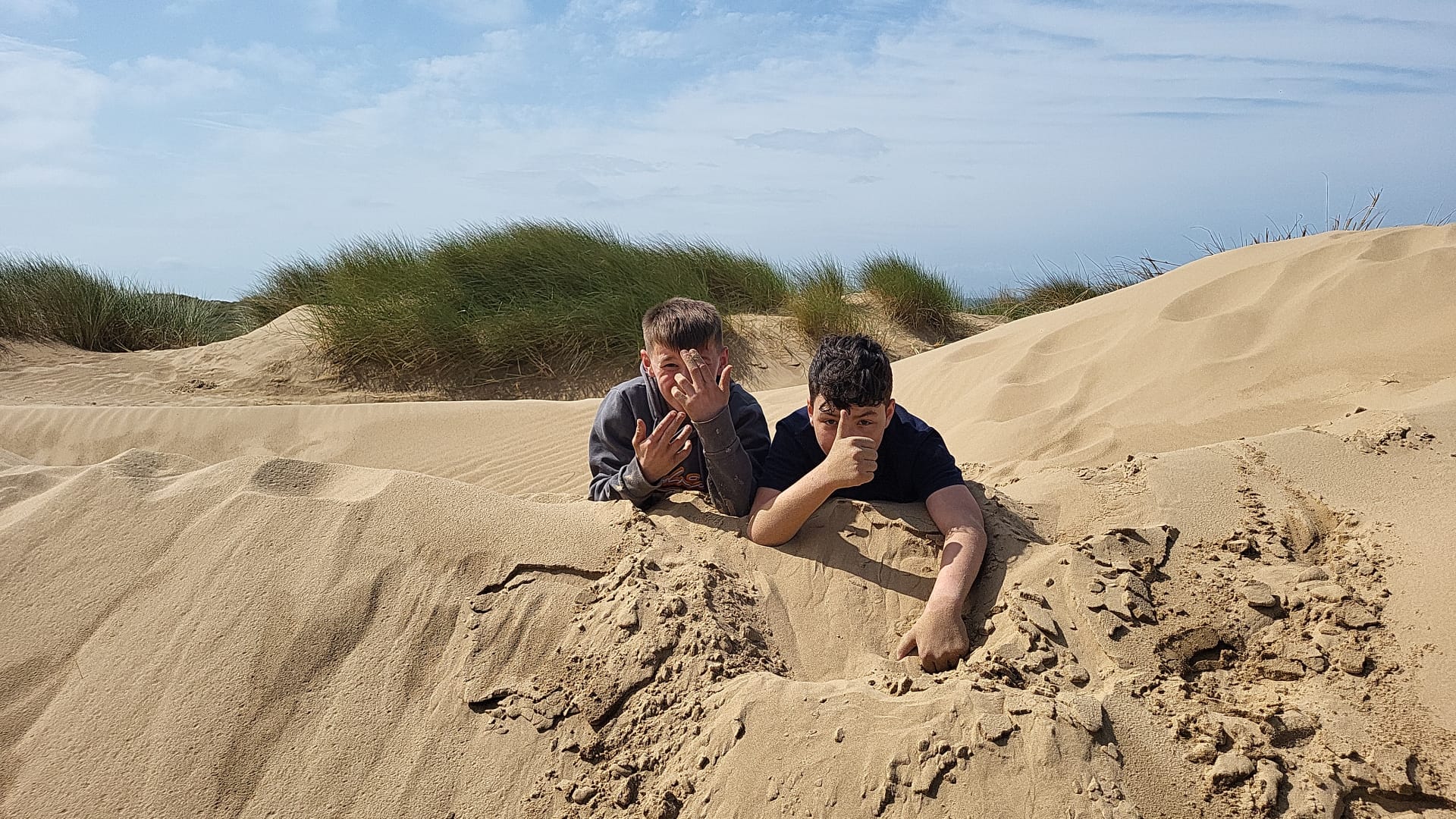
-
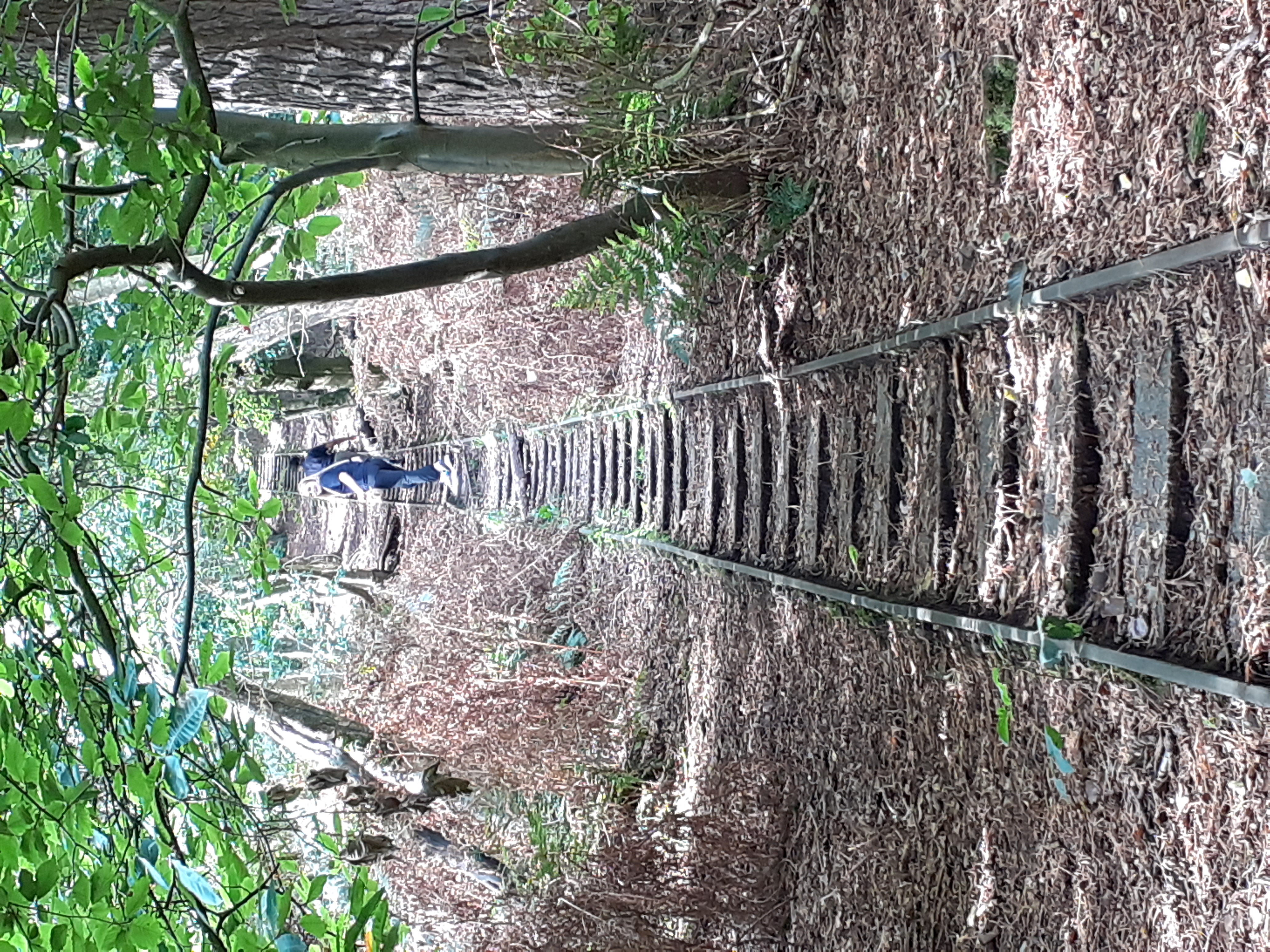
-
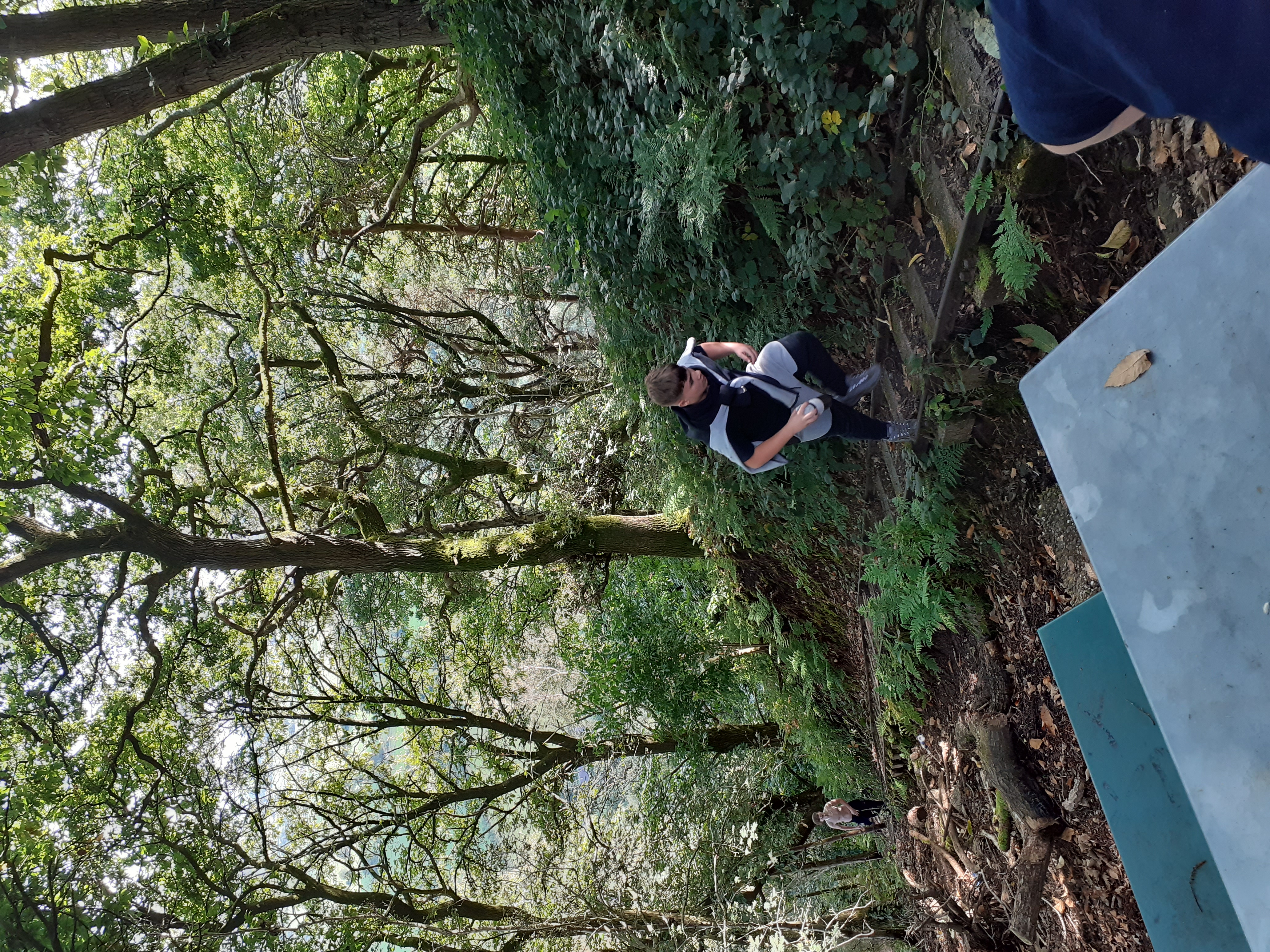
-
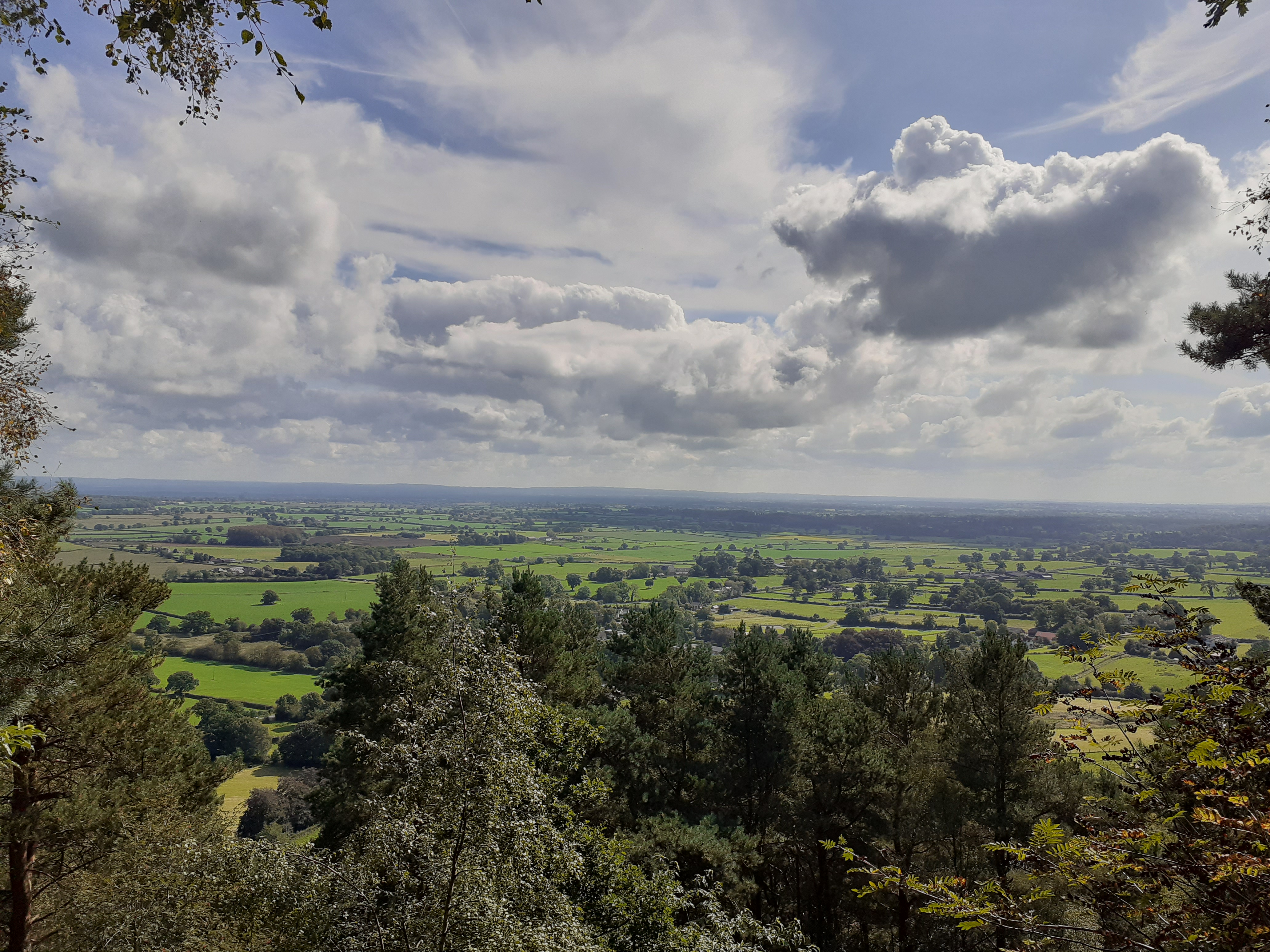 Outdoor Education
Outdoor Education
Mrs D Fisher-Sherratt, Outdoor Education Lead
dfisher-sherrat@oakfieldlodge.cheshire.sch.uk
Intent:
At Oakfield Lodge we believe the beauty of Outdoor Education is that our natural world offers us so many opportunities to provide hands-on learning experiences for our children. Outdoor learning may be used to provide active learning experiences to small groups who need support in a particular area, including re-engagement with learning, looking at a new task in a new way, and making learning stick. We aim to create resilience in these young people preparing them for future adulthood. For some children learning within the confines of a classroom is often stifling. Therefore, Outdoor Education can offer so much more for our children, motivating them with their learning, building self-belief, delivering marked improvements in both mood and confidence. In today’s modern, technology-focused era, children are spending more and more time indoors rather than experiencing outdoor adventurous activities. By taking education and learning outside this provides an opportunity for our children to be more active, provide them with creative experiences that ultimately help learning to become embedded. All this is aimed at generating a positive impact in children’s physical, mental health and general wellbeing allied to positive learning outcomes.
Implementation:
Across all Year Groups, Outdoor Education is designed to deliver a weekly timetabled coherent learning journey for our students building on, what we have determined to be, skills for life, culminating in both Prince’s Trust and AQA Unit Awards as a result for our Young People.
Impact:
Outdoor Education at Oakfield Lodge will ensure our students are Ready, Respectful and Safe for outdoor adventurous activities and future adult life.
Year 10
